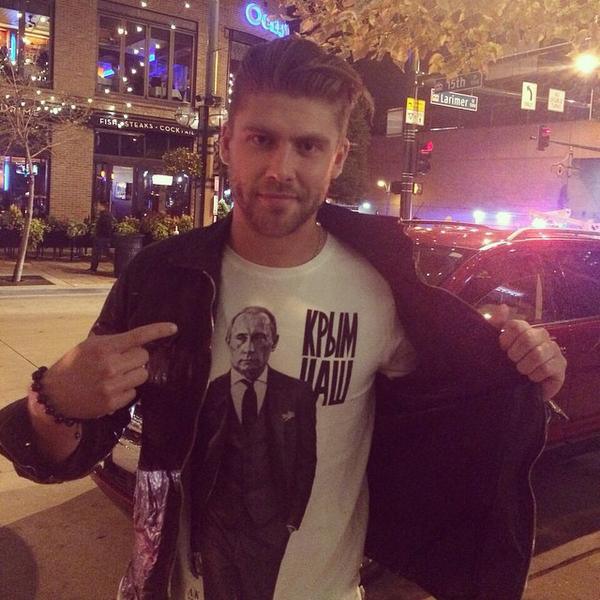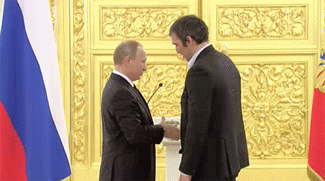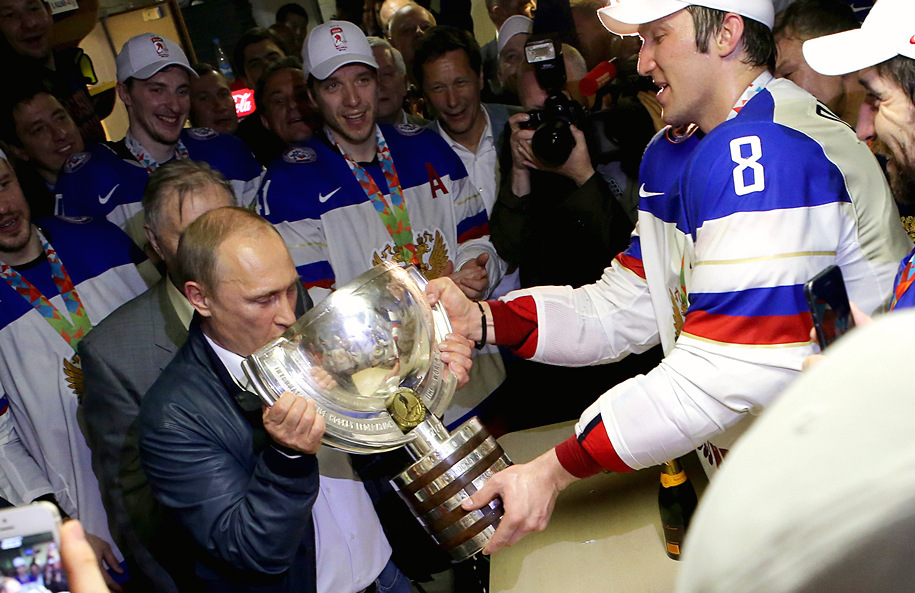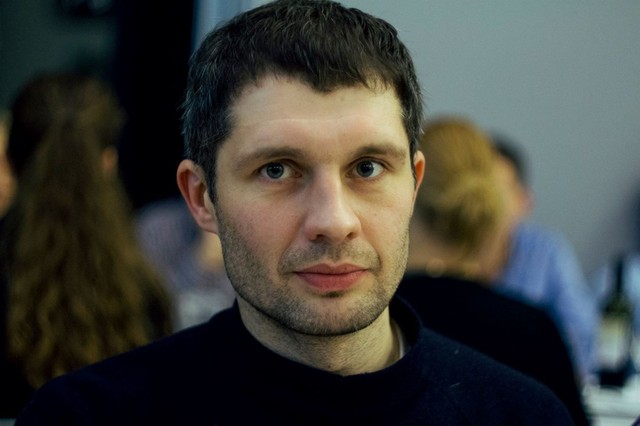A number of Russian NHL stars have quickly taken to backing their homeland in the war against Ukraine, with multiple MVP Alexander Ovechkin making the most recent headlines. The negative attention was significant enough that Hall of Famer Slava Fetisov expressed concern over how Ovechkin will continue to be received by fans in North America.
On Instagram, Ovechkin posted a controversial picture of himself holding a card reading “save children from fascism.” Given the context of evoking ‘fascism’ in Russian rhetoric over the past several months, the Washington Capitals winger is effectively saying Russia must save children from Ukraine and Ukrainians, or possibly even Americans, as many Russians blame the US for importing ‘fascism’ into Ukraine.
Affixed to the picture is also the note: “Our grandparents have seen the horrors of fascism. We will not allow it in our time!!” – clearly throwing his weight behind Russia’s military invasion aimed at preventing Ukrainian democracy and independence from taking root.
Acclaimed historian Timothy Snyder best explains the politics of the term:
Thus began the politics of fascism and anti-fascism, where Moscow was the defender of all that was good, and its critics were fascists. This very effective pose, of course, did not preclude an actual Soviet alliance with the actual Nazis in 1939. Given today’s return of Russian propaganda to anti-fascism, this is an important point to remember: The whole grand moral Manichaeism was meant to serve the state, and as such did not limit it in any way. The embrace of anti-fascism as a rhetorical strategy is quite different from opposing actual fascists.
“Anti-fascist” slogans (and even organizations) are also typically espoused as a smokescreen by Russia’s far-right, a political sphere that ironically contains a plethora of racist, neo-Nazi and indeed fascist figures. A leading figure of this core, Russian ideologue Alexander Dugin, recently called for the outright genocide of Ukrainians, calling for the country to be “cleansed” of the Ukrainian “race of bastards.”
Thankfully, despite Ovechkin’s concerns, hockey for Donetsk area children in liberated territory couldn’t look brighter at the moment. In Druzhkivka, hundreds of players and their families turned out to start the season in the city’s new arena days after his comments.
Ovechkin’s show of support for Putin’s war wasn’t isolated to just the aforementioned photo, as he posted another photo two days later with fellow Russian NHL star Evgeni Malkin, brandishing a pair of Vladimir Putin iPhone cases, “a souvenir from our president.”
For his part, Malkin makes his position directly known in a number of recent uploads. A month ago, he posted photos of himself posing with both a figure of Soviet dictator Joseph Stalin, and an airbrushed portrait of Putin on the hood of a BMW.
More direct though is this group shot which features Malkin (right) and another NHL player, Sergei Gonchar (left) wearing Putin fan shirts in a group photo.
The shirts aren’t simply innocuous kitsch, but rather an advertisement for Crimea’s occupation. The slogan beneath the venerating screen prints of macho-Putin, which is also coyly repeated by Malkin in the photo description (with a smiley face to boot), says “polite people” – a term popularized among Russian nationalists to describe the military personnel who participated in the annexation of Crimea. To people like Malkin and Gonchar, Crimea was a ‘polite’ annexation.
Colorado Avalanche goaltender Semyon Varlamov has also posted a similar picture on his Instagram account, wearing Putin t-shirt which says “Crimea is Ours,” as reported by Sports Illustrated. [Updated September 15]

All of this should come as no surprise given these players’ track records. Following Russia’s IIHF World Championship win this summer, Putin joined in on the celebrations, partying with the players. The championship, which was hosted in Belarus, was wrought with controversy with many fans speculating that the officiating was fixed and rightfully protesting the overlooked actions of the Russian head coach who used a hidden radio device to circumvent his standing suspension.

Days later the stars, Ovechkin and Malkin, were seen again being more than chummy with the Russian leader at a state ceremony held for the roster. While they may have just been overjoyed since Putin had just bought the players brand new Mercedes sports cars to celebrate the win, Ovechkin’s personal relationship with the benevolent dictator goes further back, evening having his personal home phone number (the two call each other frequently).
Detroit star Pavel Datsyuk caused a furor earlier in the year for his comments on Russia’s repressive anti-gay laws. When asked for his position he responded with: “I’m an orthodox and that says it all.” As Sports Illustrated pointed out, the Russian orthodox church’s position on the subject is straightforward: “This is a very dangerous apocalyptic symptom, and we must do everything in our powers to ensure that sin is never sanctioned in Russia by state law, because that would mean that the nation has embarked on a path of self-destruction.” The Russian church’s position on Ukraine is, of course, not the least bit more encouraging.
But just how strong are the convictions of these players in their support for Russia? One thing’s for sure, they very much enjoy their American salaries and won’t be too thrilled if Russia continues to clamp down on American imports.
For the readers:
Should Russian athletes, especially those playing in the US capital, be allowed to display off-ice support for anti-Western or anti-American views? Leave a comment below






